- Home
- Shirlee McCoy
Home Again Page 25
Home Again Read online
Page 25
It didn’t matter.
In the grand scheme of what she’d lost, that memory was insignificant. She still resented that she’d lost it. Just like she resented her willingness to be content with the way things were now. With other people doing all the things she once had. Resented it, but seemed unable to change direction, to shift her thinking and her outlook so that she could embrace life again.
A shadow passed in front of the window, blocking the moonlight, and she leaned over the sink, the mug still in her hand, nose so close to the window she could feel cold air on her skin. A man walked parallel to the back porch, his stride long and confident, his shoulders straight, his head up. The angle of his chin, the way he moved, the quick way he pivoted away from the house were familiar.
Not Matthias, her brain shouted, but her heart still jumped the way it did every time a man walked through the front door. She knew he was gone. God knew she did. She’d been to his grave. She remembered the moment she’d seen headlights swerving toward their car. She remembered knowing that they were both going to die and that the children were going to be left alone. She remembered the split second of terror before impact. Of all the cruel things that the accident had brought, that was the cruelest. That she could remember the worst moment of her life so clearly and had forgotten so many of the best.
She shuddered, setting the mug on the counter and spinning toward the door that led to the mudroom. She walked as quickly as her legs would allow. Through the mudroom to the back door. Yanking it open and stepping onto the porch.
She planned to call out to the man, ask what he was doing and who he was. She expected it to be either Sullivan or Porter. Two of Matthias’s brothers had moved back to Benevolence. Sullivan and his new wife had moved into the farmhouse while Sunday was in rehab. She had no reason to ask them to leave. Porter lived in town in the house the Bradshaw brothers had grown up in, but he spent plenty of time on the farm.
Of course, this was an odd time for either to be wandering around outside, but maybe, like Sunday, they were having trouble sleeping.
So, yeah. She planned to call out. To ask who he was and what he was doing, but a cool breeze rustled the tender summer grass and carried a whistled melody through the darkness. She spun back in time: standing on the back porch, watching as Matt walked across the yard, listening to his cheerful whistle as he headed toward the fancy sports car he’d purchased on a whim.
“Matt!” she called, as if she were still back in time, and he was still walking away. As if she could stop him from climbing into the car they’d argued over.
Their first major disagreement.
His first big blowup.
The exact moment she’d realized that the life she loved was one he resented.
She sprinted across the porch, the way she should have that night, because if she’d stopped him then, the rest might not have happened. He might be alive, and their lives might be tattered but mendable.
Only, of course, this wasn’t the past. This was now. And her body had been broken and put back together again. Her left leg gave out as she hit the first porch step, and she stumbled, her right leg giving out, her body tumbling.
She thought she heard someone call her name, but she landed with a thud that knocked the wind out of her, and all she could do was lie where she was, face to the cold earth, right arm crushed beneath her, the cheerful sound of Matt’s whistled melody still dancing around in her head.
* * *
She wasn’t moving, but she was breathing.
Thank God for that!
Flynn Bradshaw crouched next to his sister-in-law and touched the side of her neck, feeling for the carotid pulse. She hadn’t fallen that hard, but her body had been through a lot, and he wasn’t sure how much more it could handle. A little accident could be a big one to someone in her physical condition.
She jerked away and scrambled to her knees, face pale in the moonlight, eyes wide.
“I’m fine,” she mumbled before he had a chance to ask.
She didn’t look fine. She looked as rough as Sullivan had said when he’d called Flynn at the beginning of the week. Dark circles. Sallow complexion. So thin a strong wind might carry her away.
“That was quite a tumble you took,” he responded, keeping his hands at his sides even though he wanted to wrap an arm around Sunday’s waist and help her to her feet.
“I’m fine,” she repeated, meeting his eyes. “You’re not Sullivan or Porter.”
He wasn’t Matt, either, but she’d called Matt’s name. He’d heard a lot in that one word. He’d heard longing and sorrow and anger.
Was she angry that Matt had died?
Angry that he’d left the farm in such a mess?
Angry that her life had been turned upside down and would probably never be the same?
“I’m Flynn,” he offered, finally taking her arm and helping her to her feet. She felt as fragile as she looked, her arm nothing but bone and sinew beneath a thick flannel shirt. Unbuttoned. He noticed as she pulled free and stepped back. She had a tank top beneath it, the neckline sagging to reveal jutting collarbones. He could see the outline of her rib cage, the narrow bones that crossed her chest.
“Flynn.” She tried out his name as if she hadn’t heard it before.
“Matt’s oldest brother,” he reminded her. “I come every weekend to help with the farm.”
“I remember,” she responded, but he suspected she didn’t.
“I’m sorry if I—”
“You didn’t.” She cut him off.
“You don’t even know what I was going to say.”
“Whatever it was, you don’t need to apologize. I was in the kitchen and saw you. I thought you were Porter or Sullivan.”
But she’d called for Matt.
Something he decided not to point out.
“How about we talk about it inside?”
“There’s nothing to talk about.” She stood in the moonlight, gaze focused on a distant field. Corn, he knew, because he’d helped plant it. He’d also helped design the maze that would be cut through it in a few weeks. He’d purchased an old wagon that the farm would give hayrides in. He’d ordered baskets for people to use when they picked their own apples from the orchards. He’d been able to do it all from Texas, making calls and placing orders and planning things out.
But fall was approaching rapidly, and so was Porter’s wedding. Something that Flynn had been reminded of every day for a month.
It was his turn. He knew it. To return to Benevolence for more than two nights and three days. To step in like his brothers had. To take on more responsibility so that Porter could take on a little less. To fill in so that life could continue for his nieces and nephews in the house they knew, in the home they loved.
He’d sacrifice a lot to give them that, but he sure as hell didn’t plan to stay any longer than necessary. The wedding date was set for the first weekend of November. Flynn planned to be back at his ranch in Texas by the first week of December. He had a great ranch manager, fantastic ranch hands; even without his presence the cattle ranch ran like a well-oiled machine. Things went wrong, of course. There were emergencies, but he felt confident in his employees. He could easily stay in Benevolence year-round and the ranch would thrive.
But he wasn’t going to.
Unlike his brothers, he had no desire to settle down in Washington.
Besides, with Porter and Sullivan nearby, Sunday and the kids would be fine.
Or, at least, that’s what he’d been telling himself.
Now, watching Sunday, he wondered why it had taken him so long to hear what his brothers had been saying. Sunday was up. She was walking.
But she wasn’t there.
Not really.
Even now, when she was dragging her feet through thick grass, heading across the yard and toward the cornfield, she seemed focused on some other place and time. Separated, somehow, from the cool breeze and rustling leaves.
He walked with her, stepping onto a we
ll-worn path that stretched from the yard, through a pasture, and to the first of many planted fields. If wandering around before dawn was a habitual thing for her, he didn’t approve. Not that it was his business to monitor her life, and not that it was his job to decide what she should or shouldn’t do. She was an adult. She might still be recovering from several serious injuries, but she had the right to make her own decisions.
He still didn’t like the idea of her wandering around by herself in the dark. She could trip, fall, hit her head. Reinjure herself.
“Where are we headed?” he asked.
“Nowhere,” she responded.
“It’s a little chilly to be walking around without a jacket or shoes. How about we go back to the house and you get both?”
“That would defeat the purpose.”
“Of?”
“I was trying to remember what it felt like to walk barefoot through the grass. I couldn’t, so I’m making a new memory.”
“A jacket would still be good.” He slipped out of his and dropped it around her shoulders.
She tensed.
He expected her to shrug out of the jacket and hand it back, but she continued walking. Silent. Focused. One step after another. Her stride short and hitched. Her movements tightly controlled, as if she were afraid she might come apart—all the knit-together pieces of herself shattering.
“Do you do this often?” he asked as they reached the edge of the yard and the gate that opened into the ten-acre horse pasture. Beyond that, the cornfield was a lush sea of green-gold stalks.
“Walk outside barefoot? I don’t think so.”
“Walk outside at night alone,” he corrected.
“I’m pretty sure this is my first time since the accident.”
“Pretty sure?”
“My memory isn’t all that great,” she responded, still walking. She made it halfway across the grassy clearing before she stopped. There was nothing there. Just summer growth of alfalfa, eaten down by the three ponies that had been purchased a few weeks ago. Stormy, Sammy, and Cupcake.
Cupcake had been Moisey’s choice. The scrawny, spindly-legged old man had been retired from an equestrian farm that gave riding lessons. Flynn had attended the horse auction with his brothers and nieces and nephews. He’d voted against taking on the fifteen-year-old pony. First, it didn’t look sound enough for even the lightest rider. Second, it had an attitude.
But Moisey had fallen in love, claiming that she was the only one who would ever be able to see the pony’s beauty and value.
She’d probably been right.
No one else had bid on the old man, and they’d loaded him onto a borrowed horse trailer with two beautiful young ponies that would be perfect for young farm visitors to ride.
“You okay?” he asked.
“The cornfield is farther than I remember,” Sunday responded, spinning a slow circle, her short hair fluttering in the breeze. “Everything looks great, and the grass feels just like I thought it would.”
“So you have your new memory.”
“Yes,” she agreed.
“But you’ll get a better look at the farm in the morning when the sun is up and you can see it more clearly. How about I take you for a ride to the cornfield and show you the plans for the maze?” he offered, because he hadn’t just come to take his turn and do his part. He’d come with a goal. One that his brothers had been discussing for weeks. It was nothing to do with Porter’s wedding and everything to do with Sunday.
“That might be nice,” she said.
He didn’t know her well.
He couldn’t really claim to know her at all.
The fact was, she and Matt had begun dating a couple of years after Flynn left town. He hadn’t returned for a visit until long after they were married. As a matter of fact, he’d met Sunday for the first time the Christmas after she and Matt had adopted Twila. Their first child, and it had seemed like a momentous enough thing for Flynn to return for a couple of days.
He’d been smitten with his only niece, but that hadn’t made his visits any more frequent. Once a year for two or three days wasn’t enough time to get to know anyone, and what little he did know about Sunday consisted of memories of her carrying little kids, feeding little kids, smiling at Matt. Cooking, cleaning, running errands. Always, it had seemed to him, happy.
The woman who was eyeing him through the darkness was nothing like his memory of her.
So, yeah.
He didn’t know her, but he was sure she had no intention of going to the cornfield in the morning.
“If you’d rather not, that’s okay,” he said, watching her expression change, seeing the way her eyes suddenly shuttered, her lips pressed close together.
“I didn’t say I’d rather not,” she replied stiffly.
“But you were thinking it.”
“Is that your superpower, Flynn? You read minds?” she asked, looking straight into his eyes.
That was like the woman he remembered—direct and to-the-point.
“According to my brothers, my superpower is my ability to ignore the fact that you’re struggling.”
“I’m not struggling.”
“No?”
“No.” Her gaze shifted away, and he knew she was lying.
“So, we’ll go to the cornfield in the morning. We’ll look at the plan for the maze. You can see the wagon, too. The one we’ll be giving hayrides in.”
“I’ve seen it. I do, sometimes, leave the house,” she said, and she sounded just annoyed enough for him to want to tell her that she had every right to be angry. She’d gotten a raw deal, and there wasn’t a person who knew her story who wouldn’t say so.
But she was looking at him again, maybe reading the pity in his face.
“Don’t,” she said.
“What?”
“Tell me that I have a right to be upset. That this”—she waved her hand toward the house—“sucks. That losing my husband and my memories and most of my independence gives me the right to a little self-pity and anger.”
“I guess that I’m not the only one who can read minds.”
She smiled, the soft curve of her lips so surprising, Flynn found himself studying her face, seeing the woman she’d been hidden beneath the sallow skin and frail body.
“That’s not what you were thinking?” she asked, heading back toward the house.
“It wasn’t what I was going to say,” he responded.
“You’re honest. That’s a good quality in a human being.”
“And you’re strong. Another good quality.”
“That’s a platitude, F . . .” Her voice trailed off, and she frowned.
“Flynn,” he offered, and her frown deepened.
“I should have remembered that.”
“Why?”
“Because, you told me your name ten minutes ago.”
“It’s been a little longer than that.”
“Not long enough for me to have forgotten. And this isn’t the first time we’ve met. You came for Christmas almost every year.”
“You remember that?”
“You’re in a lot of the pictures.”
He supposed that was her way of saying she didn’t remember.
“Even if you weren’t, you’ve been here every weekend for months.” She started walking again, stepping through the gate and into the yard, heading around the side of the house.
He wanted to remind her that they should go inside. That it was cold, and she was still recovering, but he’d just said she was strong, and she’d just called it a platitude.
So, he kept his mouth shut and followed.
She stopped at an ancient elm tree. A swing hung from a thick branch, the wooden bench seat cracked with age.
“I remember this,” she said quietly, lowering herself onto the seat. Her feet brushed the ground but didn’t quite reach it. “It’s been here since I was a kid. It was probably here long before I was born. I remember my parents and my grandparents, but I can’t rem
ember a name that I’ve heard dozens of times recently. It’s frustrating.”
“It’s probably more than that.”
“Probably.” She smiled again, and he caught a quick glimpse of the dimples in her cheeks.
“My brothers are worried about you.”
“Is that why you’re here?”
“Partially. I’m also here because Porter is getting married, and I thought he and Clementine might want some time to prepare.”
“I forgot about that,” she murmured, using her toes to push away from the ground. “The wedding is in October?”
“November. After pumpkin picking and apple harvest.”
“There’s a lot going on at the farm nowadays.” She leaned back, her hands gripping frayed rope, his jacket nearly sliding from her shoulders.
“Does that bother you?”
She stopped the swing. “That’s an interesting thing to ask.”
“Is it?”
“Interesting might not be the right word.”
“Then what would the right word be?”
She shrugged. “There isn’t one. It’s just been a while since anyone has asked me how I felt about what was going on at the farm.”
“I’m sorry.”
“There’s no need to be. Your brothers have been doing what they think is right, and they’re doing a great job.” She stood, shrugging out of his jacket and handing it to him. “I’ll go inside, so you can stop worrying.”
She was walking away before he could reply. Moving slowly, and he could have easily walked with her.
He stayed where he was, letting her make her way to the back porch and up the stairs. He watched as she opened the door and stepped inside.
She didn’t turn on a light, but he thought she was walking through the mudroom and the kitchen. Out into the hall. Up the stairs. He knew where her room was, and where each of the kids slept. He knew that Sullivan and Rumer shared one of the guest rooms and that the live-in nanny had the other.
The ranch house that stood at the edge of the farm was occupied by Clementine and Harley, the young woman who helped her manage the farm.

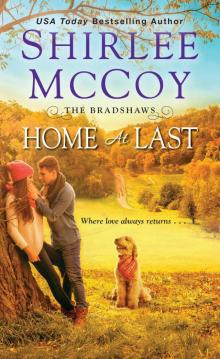 Home at Last
Home at Last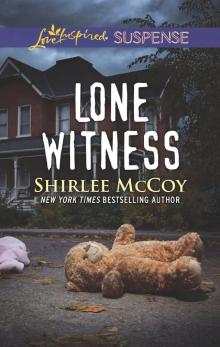 Lone Witness
Lone Witness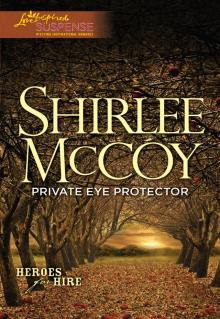 Private Eye Protector
Private Eye Protector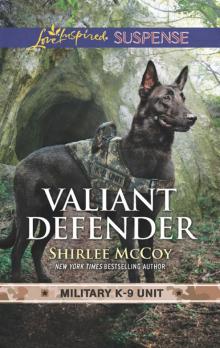 Valiant Defender
Valiant Defender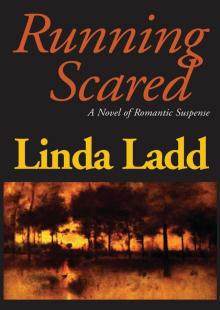 Running Scared
Running Scared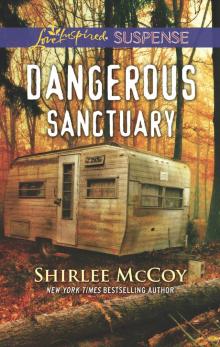 Dangerous Sanctuary
Dangerous Sanctuary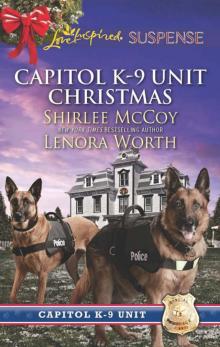 Capitol K-9 Unit Christmas: Protecting VirginiaGuarding Abigail
Capitol K-9 Unit Christmas: Protecting VirginiaGuarding Abigail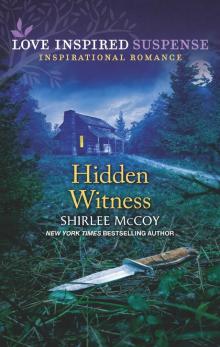 Hidden Witness
Hidden Witness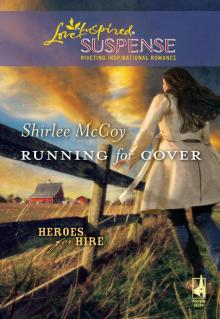 Running for Cover
Running for Cover Gone
Gone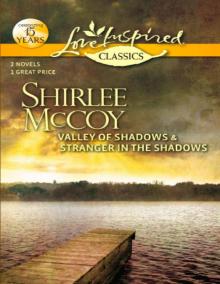 Valley of Shadows and Stranger in the Shadows: Valley of ShadowsStranger in the Shadows
Valley of Shadows and Stranger in the Shadows: Valley of ShadowsStranger in the Shadows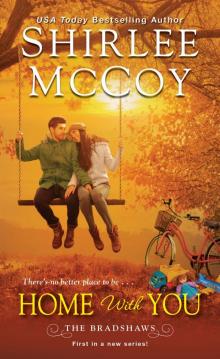 Home with You
Home with You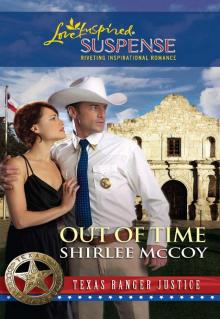 Out of Time
Out of Time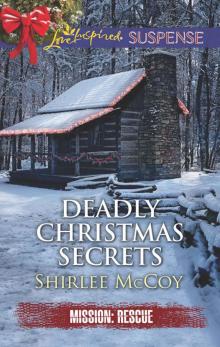 Deadly Christmas Secrets
Deadly Christmas Secrets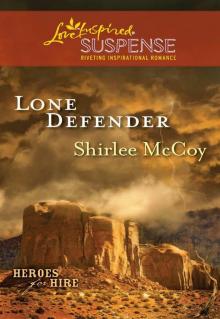 Lone Defender (Love Inspired Suspense)
Lone Defender (Love Inspired Suspense)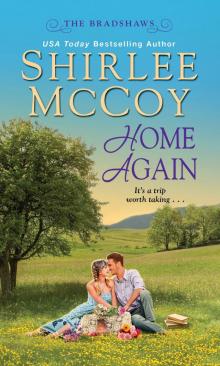 Home Again
Home Again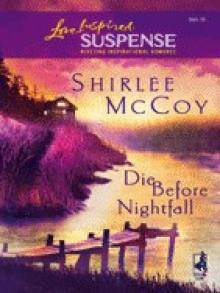 Die Before Nightfall
Die Before Nightfall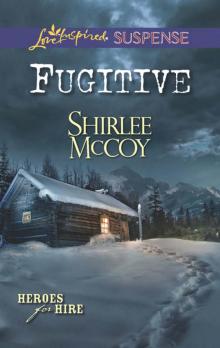 Fugitive
Fugitive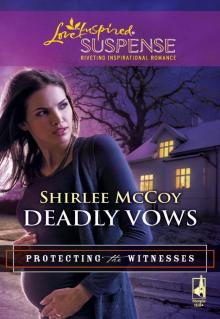 Deadly Vows
Deadly Vows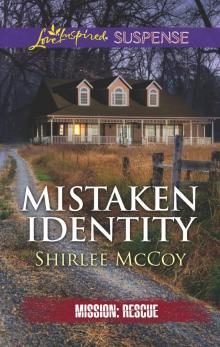 Mistaken Identity
Mistaken Identity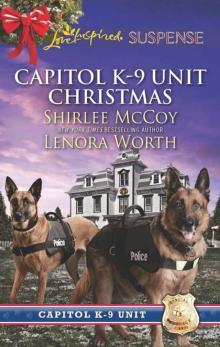 Capitol K-9 Unit Christmas
Capitol K-9 Unit Christmas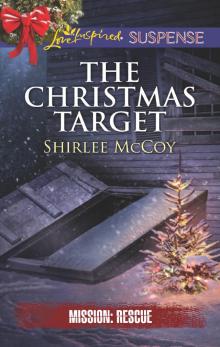 The Christmas Target
The Christmas Target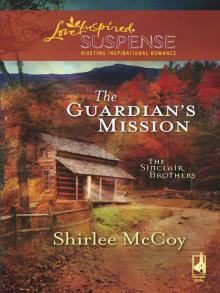 SB01 - The Guardian's Mission
SB01 - The Guardian's Mission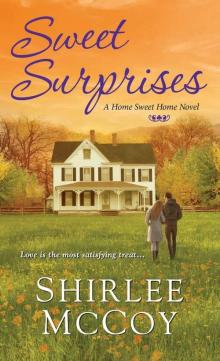 Sweet Surprises
Sweet Surprises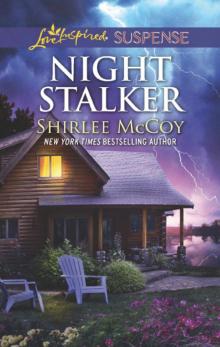 Night Stalker
Night Stalker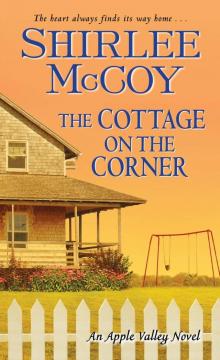 The Cottage on the Corner
The Cottage on the Corner Love Inspired Suspense January 2014
Love Inspired Suspense January 2014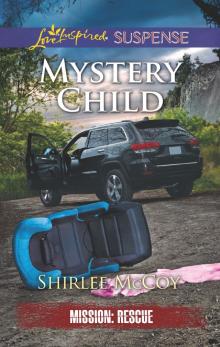 0373447477 (R)
0373447477 (R)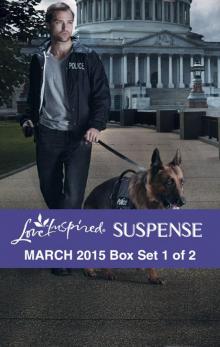 Love Inspired Suspense March 2015 - Box Set 1 of 2: Protection DetailHidden AgendaBroken Silence
Love Inspired Suspense March 2015 - Box Set 1 of 2: Protection DetailHidden AgendaBroken Silence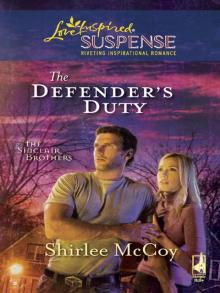 SB03 - The Defender's Duty
SB03 - The Defender's Duty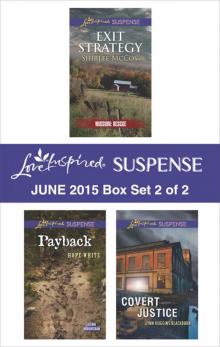 Love Inspired Suspense June 2015 - Box Set 2 of 2: Exit StrategyPaybackCovert Justice
Love Inspired Suspense June 2015 - Box Set 2 of 2: Exit StrategyPaybackCovert Justice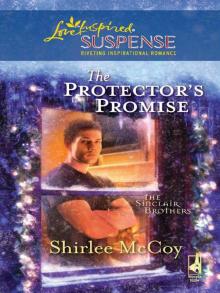 The Protector's Promise (The Sinclair Brothers)
The Protector's Promise (The Sinclair Brothers) Bodyguard
Bodyguard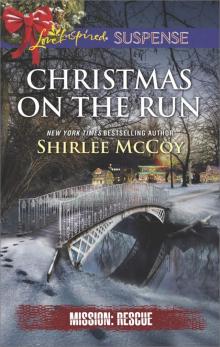 Christmas on the Run
Christmas on the Run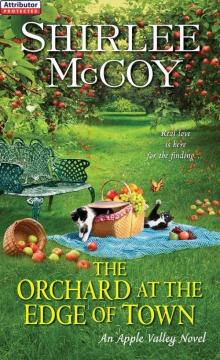 The Orchard at the Edge of Town
The Orchard at the Edge of Town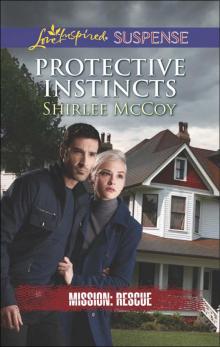 Protective Instincts
Protective Instincts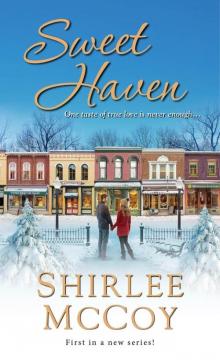 Sweet Haven
Sweet Haven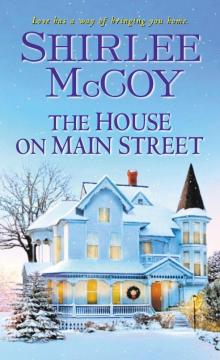 The House on Main Street
The House on Main Street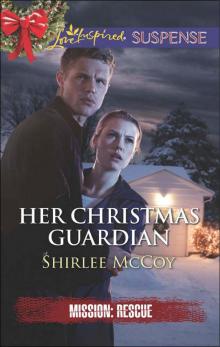 Her Christmas Guardian
Her Christmas Guardian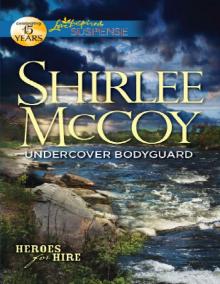 Undercover Bodyguard
Undercover Bodyguard